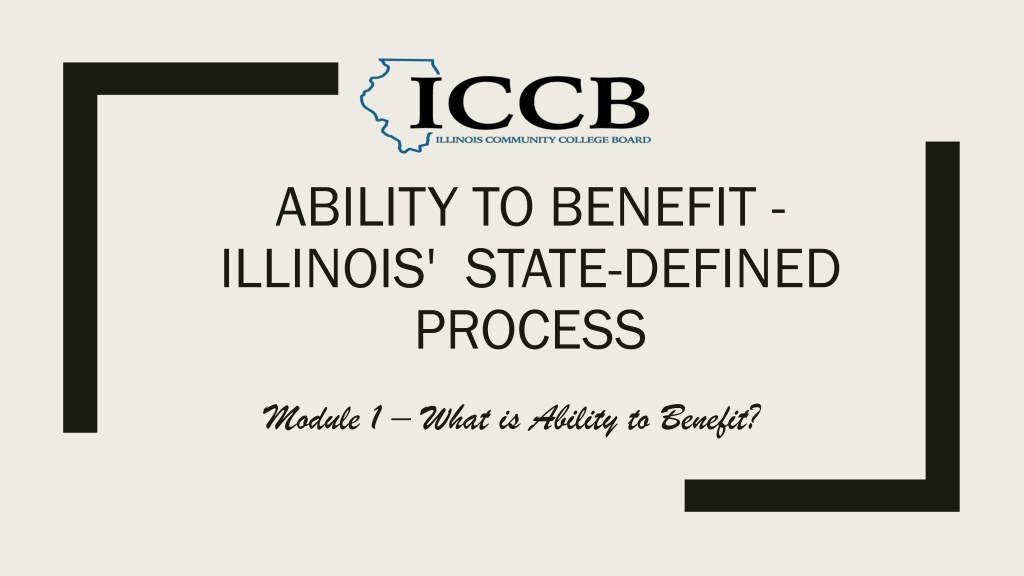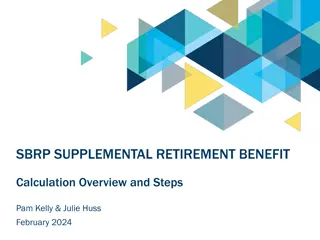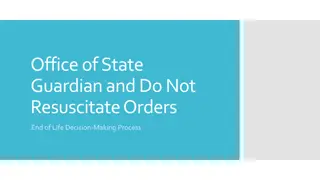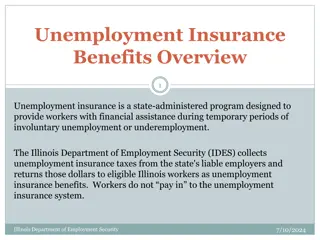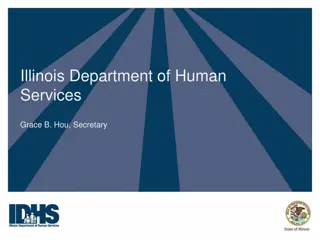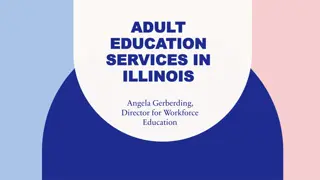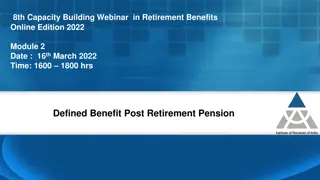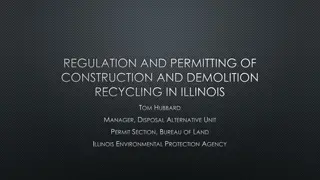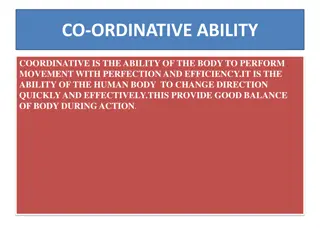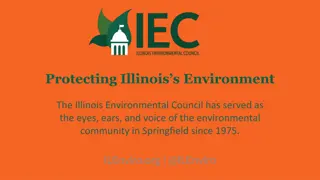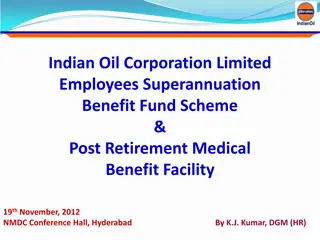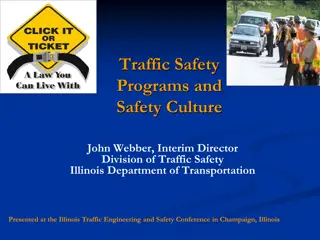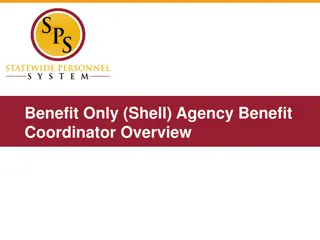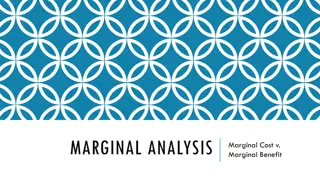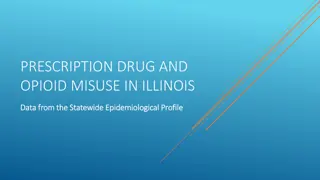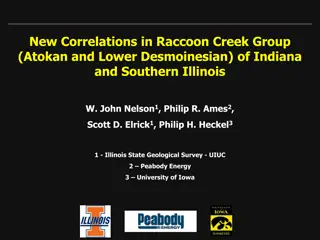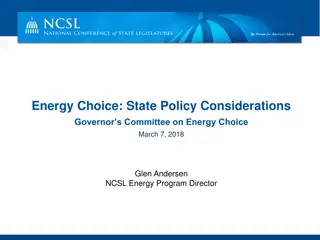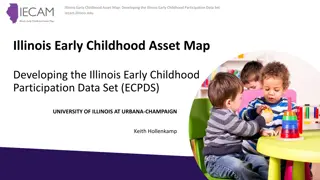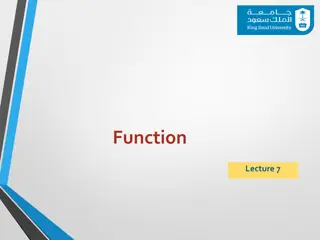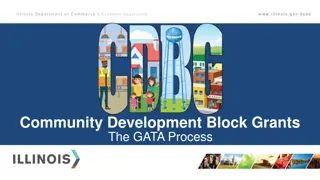Understanding Illinois State Defined Ability to Benefit Process
Explore the Illinois state-defined Ability to Benefit process through modules covering eligibility criteria, student services, accountability, and more. Discover the requirements for students to qualify for ATB and the working group involved in its implementation to enhance student access to federal aid and postsecondary completion.
Uploaded on Sep 13, 2024 | 0 Views
Download Presentation

Please find below an Image/Link to download the presentation.
The content on the website is provided AS IS for your information and personal use only. It may not be sold, licensed, or shared on other websites without obtaining consent from the author. Download presentation by click this link. If you encounter any issues during the download, it is possible that the publisher has removed the file from their server.
E N D
Presentation Transcript
ABILITY TO BENEFIT - ILLINOIS' STATE-DEFINED PROCESS Module 1 What is Ability to Benefit?
Module 1 Agenda ATB information modules Defining Ability to Benefit Institutional buy-in/Illinois completion agenda College responsibilities Student requirements under Alternative Plan
Background Module 1 Program Design Student Eligibility Module 2 Required Student Services ATB Module Overviews Success Rate- Accountability Data Collection and Reporting Monitoring Module 3 Corrective Action Termination Clause Eligible Career Pathways Module 4
Ability to Benefit Section 484(d) of the Higher Education Act (HES) Student who has not received high school diploma or equivalent Eligible for Title IV Federal Student Aid Career pathway
How Students Qualify for Ability to Benefit (ATB) Option 2 Option 2 6 credits 6 credits All requirements AND successfully complete 6 credit hours of college level course work. Option 3 Option 3 state defined process defined process All requirements AND follow Illinois s State Plan state- - Requirements (all options) Requirements (all options) Must be beyond the age of compulsory education (Can not be dual credit student) Must demonstrate financial need Have a valid SSN Must be a US Citizen or eligible non-citizen Must be enrolled in an eligible degree or certificate program Option 1 Option 1 - - test All requirements AND achieve a pre-determined score on an US Dept. of Education approved test. test
Ability to Benefit Working Group Angela Gerberding, ICCB Whitney Thompson, ICCB Kathy Olesen-Tracey, ICCB Lisa Jones, DCEO Andrea Puckett, IECC Richard Hayes, CCC Maureen Fitzpatrick, CCC Lauren Hooberman, CCC Carmela Ochoa, MVCC Kerry Urquizo, HCC Jamil Steel, LLCC Alison Mills, LLCC Christina Manchen, RLC Cheri Rushing, RLC Ginger Harner, SCC Chris Warden, Women Employed Sarah Goldammer, SIPDC Peggy Heinrich, ECC Vicky Garcia, PSC Bianca Perkins, BHC
Institutional Buy-in for ATB Increase student access to federal financial aid Increase postsecondary credential and degree completion Increase enrollment & revenue ATB and the Illinois completion agenda
Industry partners Local organizations Partnerships for ATB Alignment Community College
College Responsibilities in ATB Documentation Assessment Wrap around services Eligible career pathway
Eligible Career Clusters 1. Agriculture, Food, and Natural Resources 2. Arts (Performing and Visual), Audio/Video Technology and Communications 3. Business Management and Administration 4. Finance 5. Marketing 6. Hospitality and Tourism 7. Transportation, Distribution, and Logistics 8. Education and Training 9. Government and Public Administration 10. Law, Public Safety, Corrections, and Security 11. Human Services 12. Health Sciences 13. Information Technology 14. Architecture and Construction 15. Manufacturing 16. STEM 17. Energy
Career Pathway Components Aligns with industry needs Range of options Counseling Education contextualized and concurrently Wrap around services Enables secondary diploma attainment Enter or advance in career cluster
Student Eligibility for Alternative Plan Adult learner Meets all other eligibility criteria for federal financial aid Does not meet original ATB criteria Ideal candidates: are enrolled in an Early School Leaver Transition or an ICCB approved Alternative Methods of Credentialing for High School Equivalency programming OR OR have successfully completed a Bridge Program within Adult Education.
Module 1 Summary Defined Ability to Benefit Institutional support College responsibilities Student requirements under Alternative Plan
Visit Our Other Modules Module 2: ATB Program Design Module 3: Data Collection & Reporting Module 4: Eligible Career Pathways
Resources Important Links Questions? USDOE ATB FAQ Contact: Whitney Thompson, Deputy Director for Workforce Education, whitney.Thompson@illinois.gov CLASP ATB Resources ICCB ATB Resources Angela Gerberding, Director for Work- Based Learning, angela.gerberding@illinois.gov Illinois Letter of Approval, from Dept. of Education ICCB ATB Resource Guide, coming in Fall 2023
